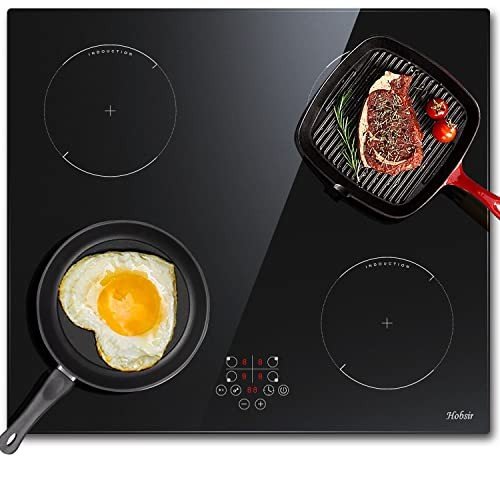The Comprehensive Guide to Sales Ovens: Understanding Their Importance, Types, and Best Practices
Sales ovens, a classification of industrial cooking equipment, are crucial gamers in the culinary and foodservice market. These appliances, created to prepare food in large quantities effectively, are vital in restaurants, catering services, and other food establishments. This article explores the significance of sales ovens, their types, and best practices for selecting and using them effectively.
What Are Sales Ovens?
Sales ovens, broadly defined, are cooking devices utilized mainly in commercial kitchen areas to prepare, bake, or heat numerous food items at scale. Their design enables them to handle greater volume cooking compared to standard property ovens. Provided the nature of food service, sales ovens often include innovative innovations that promote speed, effectiveness, and even cooking.
Value of Sales Ovens in the Food Industry
Sales ovens play a critical role in food production for lots of factors:
- Efficiency: Sales ovens can prepare food faster and equally than conventional ovens, permitting chefs to prepare meals in less time.
- Consistency: With precise temperature controls, sales ovens make sure that the food is cooked evenly each time, keeping quality across thousands of portions.
- Versatility: Many sales ovens can deal with numerous cooking techniques consisting of baking, roasting, broiling, and even steaming, making them suitable for varied menus.
- Energy Savings: Modern sales ovens are typically designed to be energy-efficient, lowering functional expenses for companies.
Types of Sales Ovens
The market offers a range of sales ovens, each suited for particular cooking requirements and types of food. Here are the most typical types:
| Type of Oven | Description | Best For |
|---|---|---|
| Convection Ovens | Use a fan to circulate hot air, ensuring even cooking. | Baking and roasting products. |
| Combi-Ovens | A combination of convection and steam cooking, offering versatility in cooking methods. | Diverse menus requiring steaming and baking. |
| Conveyor Ovens | Use a moving belt to continuously cook food, perfect for high-volume operations. | Junk food and pizza. |
| Deck Ovens | Function different compartments (decks) that can be independently controlled, using high efficiency. | Craftsmen bread and pastries. |
| Rotisserie Ovens | Created to gradually roast meat on a spit, supplying tender and juicy outcomes. | Roasted meats. |
Choosing the Right Sales Oven
Picking the suitable sales oven for a specific business needs factor to consider of a number of elements:
- Volume Needs: Assess the volume of food that needs to be prepared. Higher volume means opting for conveyor or combi-ovens.
- Menu Diversity: Understanding what type of meals will be prepared can direct the choice process. For instance, a pastry shop may require a deck oven, while a restaurant might take advantage of a stove.
- Space Availability: Measure kitchen space to ensure the ovens fit properly and have actually needed ventilation.
- Budget plan: Commercial ovens can differ significantly in rate, so develop a budget that thinks about long-term functional cost savings.
- Energy Efficiency: Opt for ovens that have energy ratings to keep energy costs workable.
Best Practices for Using Sales Ovens
Successfully running a sales oven includes more than easy use. Here are some best practices to remember:
- Regular Maintenance: Schedule routine upkeep to clean and inspect the performance of the oven. This makes sure longevity and effectiveness.
- Pre-heating: Always preheat the oven to the wanted temperature before putting food inside for consistent cooking results.
- Utilize Thermometers: For accuracy, utilize an oven thermometer to guarantee that temperatures remain consistent, specifically for baking.
- Follow Cooking Times: Adhere to advised cooking times based on the kind of food being prepared. Adjustments may be necessary for different ovens.
- Avoid Overcrowding: Ensure adequate space around food products in the oven to allow for appropriate air flow.
The Future of Sales Ovens
As technology advances, so do the abilities of sales ovens. Ovens Online as smart innovation, energy-efficient designs, and improved safety features are ending up being more prominent. Ovens & Hobs promise to enhance cooking performance while likewise meeting sustainability goals.
Frequently Asked Questions about Sales Ovens
Q1: How do I clean my sales oven?
A: Regular cleansing includes getting rid of any food particles, cleaning down surface areas with non-corrosive cleaners, and following specific cleansing suggestions from the manufacturer.
Q2: What's the life-span of an industrial oven?
A: Typically, a well-kept industrial oven can last anywhere from 10 to 20 years, depending upon use and maintenance.
Q3: Can sales ovens be utilized for baking?
A: Yes, lots of types of sales ovens, particularly convection and deck ovens, are particularly designed for baking a series of products.
Q4: Are there energy-efficient options for sales ovens?
A: Yes, numerous producers provide energy-efficient models that lower energy consumption without sacrificing performance.
Q5: How frequently should I carry out maintenance on my sales oven?
A: It's advisable to carry out regular maintenance checks on a monthly basis or quarter, depending on use levels. In Hobs Sale , a detailed inspection ought to occur at least annually.
Sales ovens are essential in the contemporary cooking landscape. Their capability to cook big amounts of food efficiently makes them vital for restaurants, catering services, and other food establishments. By understanding the numerous types, choosing the ideal oven, and sticking to best practices, food service businesses can optimize their cooking processes, boost their offerings, and eventually thrill their consumers with impressive culinary developments.

